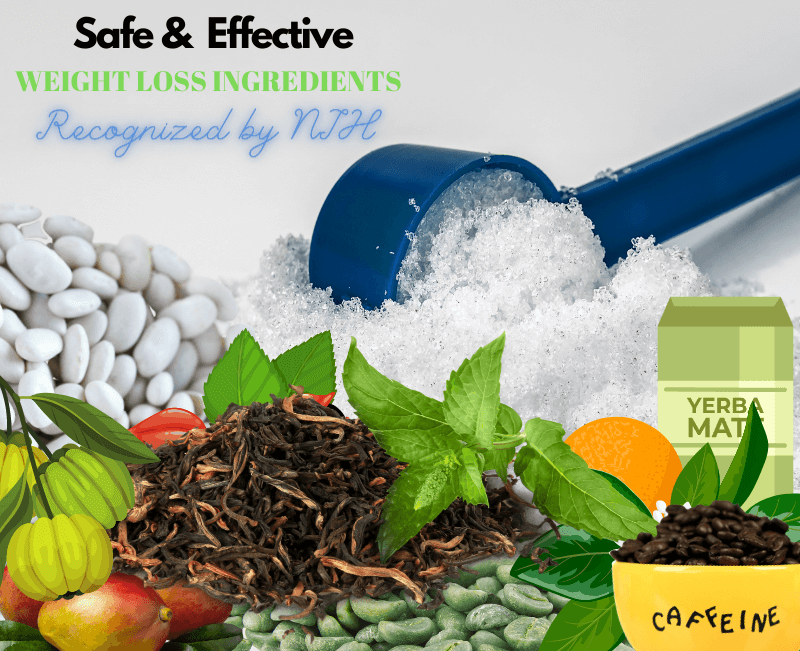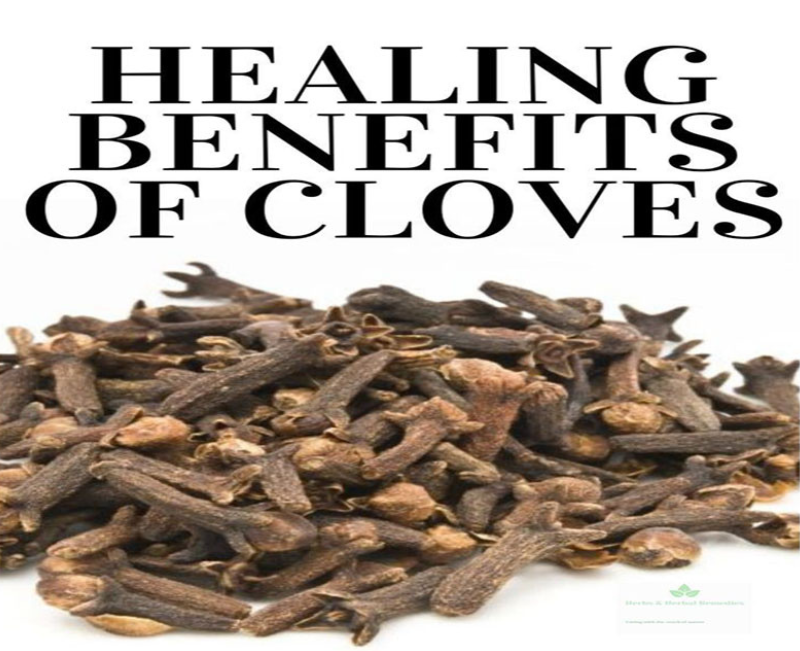
NIH Recognized Weight Loss Ingredients: How to Choose the Perfect Ones
Due to the unhealthy lifestyle and consumption of adulterated foods, the number of obese and overweight people is alarmingly increasing. Medical science is tirelessly trying to find out a solution. In this effort, herbal or alternative medication is not also far behind. Different herbal pills have been introduced to support people trying to lose weight. These supplements are composed of various ingredients. This article will review the weight-loss ingredients that the American National Institutes of Health recognized as safe and effective.
Ingredients Found to be Effective in Science Journals
After a long review of clinical trials published in science journals, the American National Institutes of Health (NIH) prepared a fact sheet on dietary supplements for weight loss. The fact sheet of NIH recognized in the long run a number of ingredients that are really helpful and effective to lose weight. They are as follows:
- African Mango
- Caffeine, Including Caffeine from Guarana, Kola Nut, Yerba Maté, or Other Herbs
- Carnitine
- Green Coffee Bean Extract
- Green Tea and Green Tea Extract
- White Kidney Bean
Besides, NIH further recognized that there are some other ingredients that have to some extent capacity to lose weight such as bitter orange, chitosan, chromium, conjugated linoleic acid, and garcinia cambogia.
Apart from that probiotics have also been found to have inconsistent effects on body fat, waist and hip circumference, and body weight.
African Mango
African mango extract has popular use in weight loss supplements. Its scientific name is Irvingia gabonensis. African mango is a tree native to West Africa. Here, we are concerned with the fruit of this tree.
Clinical Efficacy
A clinical trial on 102 overweight adults that the group of participants taking 300 mg of IGOB131® (African mango extract) daily experienced a substantial decrease in body weight and waist circumference. [3]
It is noteworthy that not enough data is available with regard to the clinical efficacy of African mango to lose weight. For this reason, medical scientists recommend much more extensive research to confirm the effectiveness of the African mango in reducing body weight.
Safe Dosage and Side Effects
African mango extract is found to be safe. An animal study showed that African mango extract at a dose of 2500mg per kg body weight daily for 90 days is found to be well tolerated. [4]
There may be some mild adverse effects of African mango. They are as follows: [5]
- Headache
- Gas
- Flatulence
- Difficulty sleeping
Besides, there is a reported case of renal failure in dialysis patient consuming African mango.
African Mango During Pregnancy and Breastfeeding
Since there is no sufficient data as to the safety of African mango during pregnancy and lactation, avoid the same for the interest of your baby. [6]
Caffeine, Including Caffeine from Guarana, Kola Nut, Yerba Maté, or Other Herbs
Caffeine is a natural stimulant. Its stimulant effect is mild in nature. It can enhance our energy and alertness immediately. [7]
The rich sources of caffeine are guarana, kola nut, yerba mate. Also at the same time green tea, other forms of tea, and coffee contain caffeine. [7, 8]
Clinical Efficacy
A study on 167 overweight people for the duration of 6 months found that the group of people taking supplement composed of Kola Nut (caffeine) at a dose of 192mg/day and ma huang (ephedrine) at a dose of 90mg/day lost remarkably more weight than a placebo group. [11]
It is noteworthy that the participants were asked to take their usual diet and exercise moderately.
Another study on 47 overweight adult overweight people ranging for 45 days demonstrated that a supplement formed of 336mg of yerba mate, 285mg of guarana, and 108mg of damiana reduced significantly more weight in the treatment group compared to the placebo group. [12]
An observational study on 18,417 healthy males and 39,740 healthy females for a long period of 12 years reached the conclusion that caffeine is helpful in maintaining weight loss. [13]
Caffeine during Pregnancy and Breastfeeding
Caffeine is safe during pregnancy and breastfeeding. Now the question is- what is the safe dose of caffeine for pregnant and breastfeeding mothers?
As per the American College of Obstetricians and Gynecologists (ACOG), the consumption of caffeine less than 200 mg per day does not pose any risk of miscarriage or preterm birth. So, the safe dose of caffeine consumption for pregnant women is 200 mg per day. [16]
Likewise, as per the European Food Safety Authority (EFSA), consumption of 200 mg of caffeine by breastfeeding women poses no safety concerns for infants. [15]
Carnitine
Carnitine is a broad term for different compounds such as L-carnitine itself, several acylcarnitine (e.g., acetyl-L-carnitine), and propionyl-L-carnitine. Carnitine is a chemical that aids to convert fat into energy. It is synthesized form of two important types of amino acids lysine and methionine. [17]
Carnitine is a natural element that is abundant in meat, fish, poultry, milk, and dairy products.
Mechanism of Action
It aids to lose weight by-
- Increasing the breakdown of the fatty acid (fat oxidation)
Clinical Efficacy
In a study on 254 patients with type 2 diabetes, the medical scientists found that the group of patients taking 2g/day carnitine in combination with orlistat 360mg/day lost more weight compared to the group taking orlistat alone. [18]
A meta-analysis of 37 randomized control trials involving 2292 showed that l-carnitine has the capacity to lose weight at a moderate level. [19]
Safe Dosage and Side Effects
Safe Dosage and Side Effects
There is no safety concern about taking carnitine at a dose of 2g/day for up to one year and 4g/day for up to 56 days.
The user may face the following side effects: [20]
- Nausea
- Vomiting
- Fishy odor in the body
- May increase TAMO (trimethylamine N-oxide), a risk factor for cardiovascular disease
Carnitine during Pregnancy and Breastfeeding
Severe deficiency of carnitine plasma concentration occurs during pregnancy and lactation. Therefore, if a normal diet fails to compensate for carnitine deficiency, carnitine supplementation becomes necessary to overcome the deficiency. [21, 22, 23]
So, it can be said that carnitine is not only safe but also necessary.
Green Coffee Bean Extract
Green Coffee extract is collected from unroasted green coffee beans. The extract is the form of concentrated chlorogenic acid.
Though the idea of green coffee extract’s capacity to lose weight dates back several years, it got momentum when Dr. Oz., an American celebrity physician, campaigned it as a magical weight loss component in 2012. [24]
Now it is well-accepted that green coffee extract has the capacity to lose weight.
Mechanism of Action
It contributes to losing weight by:
- Preventing fat accumulation
- Formulating glucose metabolism.
Clinical Efficacy
A meta-analysis research report of three clinical trials published in Gastroenterology Research and Practice in 2010 demonstrated that green coffee beans at a dose of 180mg or 200mg/day decreased moderate weight loss. But the report claimed that the trials were of poor quality and of bias. [25]
Regardless of criticisms of the quality of previous research, subsequent studies confirmed without raising any objection the efficacy of coffee beans in weight loss.
For instance, a meta-analysis after the review of 13 articles and 16 randomized control trials published in Phytomedicine in 1919 revealed that the green coffee bean contributed substantially to losing weight. [26]
A very recent randomized, double-blind study on 60 healthy overweight adults in 2021 shows that CGA 7 extracted from green coffee beans substantially lowered body weight. [27]
Green Coffee Bean Extract during Pregnancy and Breastfeeding
Since there is no sufficient data as to the safety of green coffee extract, it is better to stay on the safe side and abstain from using it. [28]
Green Tea and Green Tea Extract
In the domain of tea, green tea is the richest source of anti-oxidant properties. It has a low-calorie intake. The components of caffeine and catechins present in green tea are catalysts for losing weight. But green tea contains less caffeine than coffee and black tea.
Clinical Efficacy
A review study of 14 randomized control clinical trials involving 1562 overweight adults that ranged from 12 to 13 weeks concluded that green tea supplements contributed to losing on an average 0.95 kg more weight than placebo. [32]
Another review study of 15 randomized control trials demonstrated that green tea catechins at a dose of 576–690 mg/day combined with caffeine caused a significant reduction of body weight, but green tea catechins without caffeine had no effect on body weight.
Green Tea and Green Tea Extract during Pregnancy and Breastfeeding
Green tea is safe during pregnancy at a moderate level. But in this respect, keep in mind that you have to limit the consumption of green tea due to the presence of two ingredients in green tea. They are caffeine and catechins. [35]
Excess amount of caffeine is harmful to the tiny one in your womb and catechins deter the absorption of folic acid which is vital for forming neural tubes and preventing some birth defects in the baby. [35, 36]
Consumption of green tea (an amount that equals high caffeine intake) by lactating mothers may cause fussiness, jitteriness, and poor sleep patterns in infants. [37]
It is noteworthy that overall caffeine consumption for pregnant and lactating mothers up to 200 mg is safe a day. [16]
With regard to green tea extract, an animal study demonstrated that prenatal consumption of green tea extract contributed to preventing inflammation in offspring after weaning but maternal consumption of green tea extract affected negatively as it led to developing a pro-inflammatory state in offspring after weaning. [38, 39]
But the University of Maryland Medical Center advises abstaining from consuming green tea during pregnancy and lactation.
White Kidney Bean
White kidney bean is scientifically known as Phaseolus vulgaris L. [40] White kidney bean possesses α-amylase inhibitors that contribute to reducing and maintaining weight by blocking carbohydrates. A number of clinical studies substantiated the amazing capacity of this weight-loss ingredient to lose weight.
Mechanism of Action
White kidney bean supports to lose weight by:
- Interfering with the breakdown and absorption of carbohydrates
Clinical Efficacy
A randomized double-blind study on 60 mildly overweight women taking 2,000–2,200-calorie meals found that a 445 mg daily dose of dried extract of Phaseolus vulgaris L. (white kidney bean extract) caused substantially more weight loss to the treatment group than the placebo group. The result also demonstrated that the extract reduced the circumferences of the waist, hip, and thigh. [41]
A review study of 6 clinical trials involving 247 participants revealed that 445mg to 1500mg/day caused a significant decrease in body fat with no effect on body weight. [42, 43]
Later on, two 12-week clinical trials on 123 and 49 overweight people revealed that Phaseolus vulgaris L. extract (white kidney bean extract) at a dose of 1000mg thrice a day (total 3000mg daily) caused a significant reduction of fat and weight in the treatment group compared to the placebo group. The trials used Litramine® and Glucosanol™ brands as Phaseolus vulgaris L. extract. [44, 45]
In the subsequent 24-week trials, it was also surprisingly noticed that Phaseolus vulgaris L. extract was equally effective for weight maintenance along with weight reduction.
Safe Dosage and Side Effects
A Daily 3000mg dose of Phaseolus vulgaris L. extract is found safe. But there may be some minor side effects:
- Headaches
- Soft stools
- Flatulence
- Constipation
White Kidney Beans During Pregnancy and Breastfeeding
Beans (any type of beans) are not only safe but also a great source of folic acid, iron, and protein during pregnancy. As Cleveland Clinic advises the pregnant mother to take beans for the make-up of nutrition like iron, protein, and folic acid.
It is also safe during the period of lactation. As the Children’s Hospital of Philadelphia suggests breastfeeding mothers take beans among other foods.
But due to the lack of enough data as to the effect of Phaseolus vulgaris L. extract (white kidney bean extract) on pregnant and breastfeeding mothers, you should avoid the extract during pregnancy and breastfeeding.
How to Choose Perfect Weight Loss Ingredients
Listen to Your Body’s Demand
Different ingredients function in different ways to lose weight. So, decide which mechanism of action is fit for you to lose weight.
Consider Safety Concern
Although generally, any ingredient is safe in moderate doses, mild adverse effects may occur. So, consider whether your body is fit enough to withstand the side effects of the respective ingredients.
Take Allergic Reaction to the Ingredient into Account
It is a common phenomenon that all weight loss ingredients are not suitable for every individual. Where an ingredient is beneficial for normal people, that may be allergic to you. Consequently, you have to consider the allergic sensitivity of the material.
Weight Loss Supplements Based on These Ingredients
Prime Shred– Exclusive Weigh Loss Pill for Men
Among other ingredients, Prime Shred contains three ingredients mentioned in the NIH fact sheet with regard to dietary supplements for weight loss. They are as follows:
- Green Tea Extract
- Green Coffee
- Caffeine Anhydrous
Trimtone– Exclusive Weigh Loss Pill for Women
Among other ingredients, Trimtone also possesses three ingredients from the NIH factsheet. They are underneath:
- Caffeine
- Green Coffee
- Green Tea
Meltamin– Ever best Weight Loss Beverage for Diabetic Patients
Meltamin is in the form of a beverage. From the NIH fact sheet, the following ingredients are found in this beverage:
- Garcinia Cambogia Fruit Extract
- Guarana Seed Extract
- Caffeine Anhydrous
- Bitter Orange Fruit Extract
- Green Tea Leaf Extract
- Chromium
Fat Burn Active – Suitable for Professional Athletes
From the NIH factsheet, the following ingredients are available in the supplement Fat Burn Active:
Guarana Seed Extract
Green Tea Leaf Extract
Bitter Orange Extract
Natural Caffeine Anhydrous
Burn XT T. Fat Burner – Suitable for Healthy Overweight People
The supplement Burn XT possesses the following ingredients of the NIH factsheet:
Acetyl L-Carnitine HCL
Green Tea Leaf Extract (Catechins)
Caffeine Anhydrous
Takeaway
The ingredients mentioned above are scientifically proven to lose weight. There is a general tendency that modern science is reluctant to recognize the efficacy of herbs and herbal supplements. Despite this situation, the recognition of the said ingredient as effective to lose weight by the American topmost institute NIH is of great significance. So, the supplements composed of the ingredients mentioned above are undoubtedly capable to lose weight. But the efficacy depends on your capacity to choose the one that is best suited for your individual health condition.
References
- https://pubmed.ncbi.nlm.nih.gov/20847896
- https://pubmed.ncbi.nlm.nih.gov/19254366/
- https://pubmed.ncbi.nlm.nih.gov/23419021/
- https://pubmed.ncbi.nlm.nih.gov/22386809/
- https://www.mskcc.org/cancer-care/integrative-medicine/herbs/irvingia-gabonensis#references-2
- https://www.utep.edu/herbal-safety/herbal-facts/herbal facts sheet/african-mango.html
- https://www.hsph.harvard.edu/nutritionsource/caffeine/
- https://ods.od.nih.gov/factsheets/WeightLoss-HealthProfessional/#en30
- https://psycnet.apa.org/record/1993-16837-001
- https://pubmed.ncbi.nlm.nih.gov/27824614/
- https://pubmed.ncbi.nlm.nih.gov/12032741/
- https://pubmed.ncbi.nlm.nih.gov/11424516/
- https://pubmed.ncbi.nlm.nih.gov/26554757/
- https://www.fda.gov/consumers/consumer-updates/spilling-beans-how-much-caffeine-too-much
- https://www.efsa.europa.eu/en/efsajournal/pub/4102
- https://www.acog.org/womens-health/experts-and-stories/ask-acog/how-much-coffee-can-i- drinkwhilepregnant#:~:text=Research%20suggests%20that%20moderate%20caffeine,energy%20drinks%2C%20and%20soft%20drinks.
- https://pubmed.ncbi.nlm.nih.gov/22804748/
- https://pubmed.ncbi.nlm.nih.gov/20683173/
- https://pubmed.ncbi.nlm.nih.gov/32359762/
- https://lpi.oregonstate.edu/book/export/html/332
- https://www.nature.com/articles/ejcn200936
- https://www.ncbi.nlm.nih.gov/pmc/articles/PMC4464594/
- https://pubmed.ncbi.nlm.nih.gov/31732292/
- https://www.healthline.com/nutrition/green-coffee#weight-loss
- https://pubmed.ncbi.nlm.nih.gov/20871849/
- https://pubmed.ncbi.nlm.nih.gov/31398662/
- https://www.ncbi.nlm.nih.gov/pmc/articles/PMC7983441/
- https://medlineplus.gov/druginfo/natural/1264.html
- https://pubmed.ncbi.nlm.nih.gov/22465867/
- https://www.researchgate.net/publication/49643065_Antiobesity_effects_of_green_tea_catechins
_A_mechanistic_review - https://academic.oup.com/ajcn/article/98/6/1682S/4577486
- https://pubmed.ncbi.nlm.nih.gov/23235664/
- https://www.healthline.com/nutrition/10-benefits-of-green-tea-extract#The-bottom-line
- https://www.medicalnewstoday.com/articles/269538#side-effects
- https://www.momjunction.com/articles/is-it-safe-to-drink-green-tea-during-pregnancy_0079274/
- https://www.cdc.gov/ncbddd/folicacid/about.html#:~:text=When%20the%20baby%20is%20
developing%20early%20during%20pregnancy%2C,neural%20tube%20forms%20the%20early%20brain%20and%20spine. - https://www.ncbi.nlm.nih.gov/books/NBK501847/
- https://pubmed.ncbi.nlm.nih.gov/30020947/
- https://www.nature.com/articles/s41598-018-20174-x#:~:text=This%20study%20demonstrates%20that%20the,specific%20retroperitoneal%20and%20mesenteric%20depots.
- https://www.itis.gov/servlet/SingleRpt/SingleRpt?search_topic=TSN&search_value=26857#null
- https://medsci.org/v04p0045.pdf
- https://www.cambridge.org/core/journals/british-journal-of-nutrition/article/efficacy-of-phaseolus-vulgaris-as-a-weightloss-supplement-a-systematic-review-and-metaanalysis-of-randomised-clinical-trials/486488712F3A8CE3A25D97533A21DDEB
- https://pubmed.ncbi.nlm.nih.gov/22844674/
- https://pubmed.ncbi.nlm.nih.gov/23505169/
- https://pubmed.ncbi.nlm.nih.gov/24006357/

